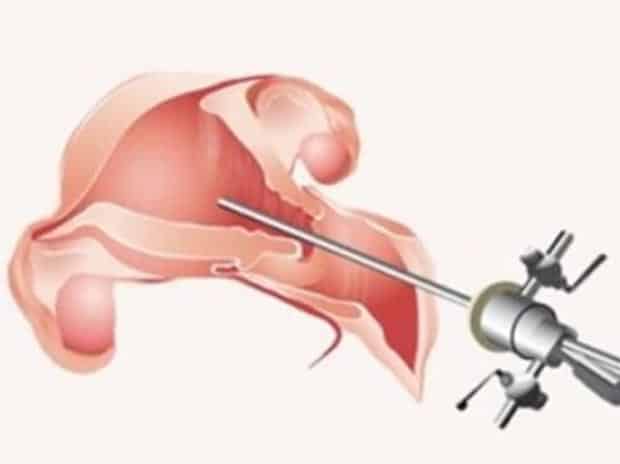What is endometrial scratch?
The patients who had failed cycles despite transferring good quality embryos, Endometrial scratch is the best procedure to help those embryos to implant successfully after the process of IVF, ICSI. Currently, the evidence suggests that superficially injuring (scratching) the lining of the womb in this group of patients may improve the chances of pregnancy.
Who is the procedure for?
This procedure is for the women who have the problem of not getting pregnancy even after the transfer of quality embryos. Currently, available evidence does not support the use of endometrial scratch in all patients, including patients going through IVF/ICSI treatment for the first time. More research is required to evaluate the role of endometrial scratch in patients going through their first cycle of IVF treatment.
How does scratching help implantation?
New research and evidence suggests that scratching the uterine lining causes a ‘repair reaction’ in patients with recurrent implantation failure and this may increase embryo implantation rates:
The repair process releases growth factors, hormones, and chemicals. The new lining which grows after the procedure is thought to be more receptive to an implanting embryo and so increases the chances of pregnancy.
‘Gene switching’ - scientists believe that the genes which are responsible for implantation of embryos are sometimes not ‘switched on’ during the time when embryos are supposed to implant. This procedure may switch on the genes which are responsible for implantation and increasing the chances of pregnancy.
>Research is still being gathered to understand exactly how this works.
When is the best time to have the procedure?
The best time to perform the endometrial scratch is during the second half of the cycle before your IVF/ICSI treatment cycle begins. The clinical team will advise on the best time for the procedure based on your periods.
What preparations are needed for endometrial scratch?
It is vital that you do not have unprotected intercourse in the four weeks before the planned endometrial scratch procedure. You should use a condom for contraception during the cycle of the scratch appointment to avoid the risk of a possible pregnancy.
We recommend taking some pain relieving medication ½ hour before your procedure, such as two paracetamol tablets (500 mg per tablet) as this may help to relieve any discomfort during the procedure.
Before the procedure food can be taken. You do not need to empty your bladder before the procedure unless you feel uncomfortable with a full bladder. You should wear comfortable clothing that gives easy access to the lower part of your body. You should bring a sanitary towel with you for use after the procedure.
What happens during my appointment and how is the procedure performed?
- • The procedure should only take 15-20 minutes. You may experience a little discomfort but no anaesthetic is required. The procedure is similar to an embryo transfer or cervical smear test.
- • The procedure will be explained to you by the doctor or nurse performing the procedure.
- • Your recent Chlamydia screening results will be checked in the notes.
- • You will be asked to sign a consent form or a verbal consent may be taken prior to the procedure. Following that you will be made comfortable on the examination couch.
- • The cervix can be seen once a speculum is inserted into the vagina gently. Sterile gauze is used to clean the cervix.
- • A flexible catheter is passed into the cavity of the uterus through the opening of the cervix and scratches the lining of the uterus.
- • The catheter is taken out at the end of the procedure.
What happens after the procedure?
Some mild bleeding is common after the procedure. An hour or two after the procedure you will be able to continue your normal daily activities, but you may benefit from not going back to work the same day. You can eat and drink normally immediately after.
What risks are involved?
Endometrial scratch is a very safe procedure. For most women it does not require any anaesthetic. Some women occasionally experience some cramping pains during and after the procedure, but these will ease in a very short time. We recommend that you make arrangements for a relative or a friend to drive you home in case you experience more discomfort than usual during the procedure. We will ensure that you are well enough before you leave the clinic.
Very rarely, the procedure can cause pelvic infection. There may be an infection within the cervix that may be spread to the uterine cavity during the procedure. This would become apparent up to 10 days following the procedure. If you suspect and experience any of the following signs and symptoms within a few days of the procedure, please contact your GP and inform them that you have had an endometrial scratch (biopsy):
- • Foul-smelling vaginal discharge.
- • Persistent bleeding.
- • Increasing lower abdominal pain.
- • Unexplained fever.
- • Feeling generally unwell.
Please note that it is recommended to screen all women for Chlamydia prior to endometrial scratch and you already would have been screened with the initial investigations at our department before starting your IVF treatment.
Your doctor or fertility specialist nurse will check this if you have already had a test for Chlamydia within the last 2 years.

